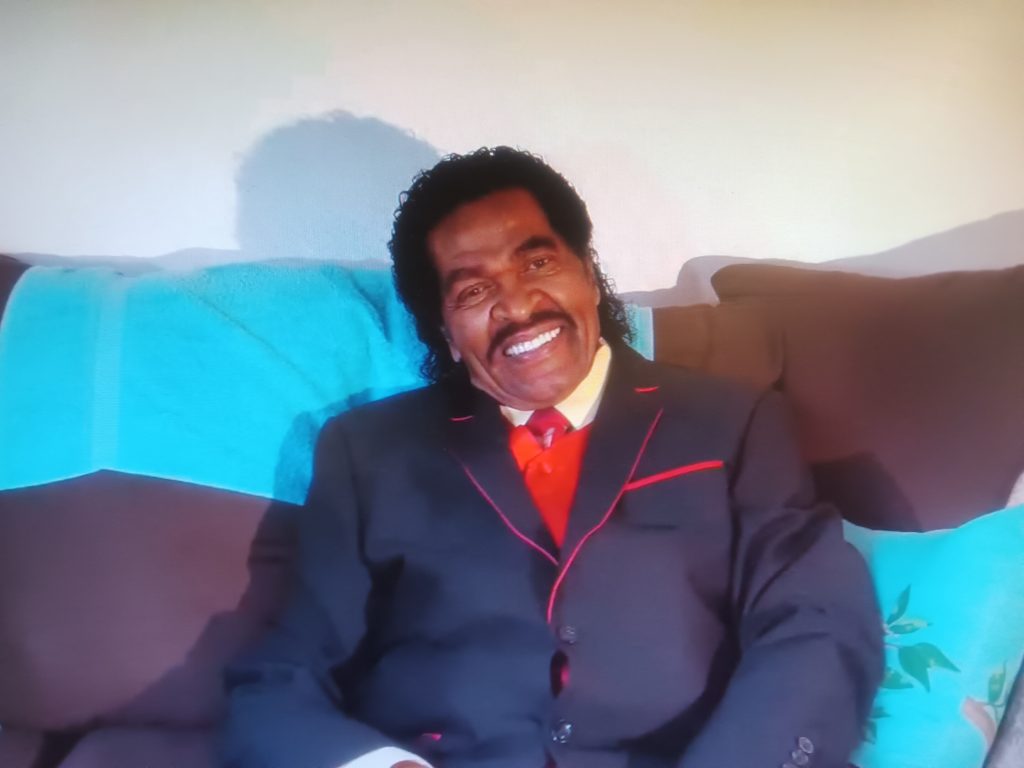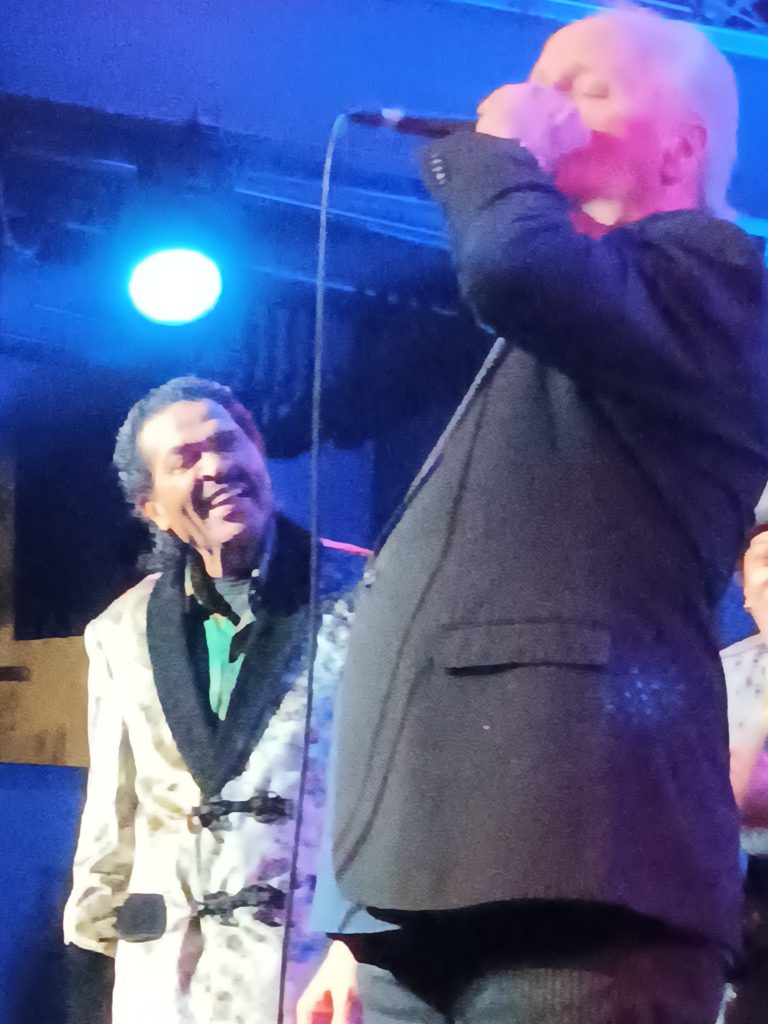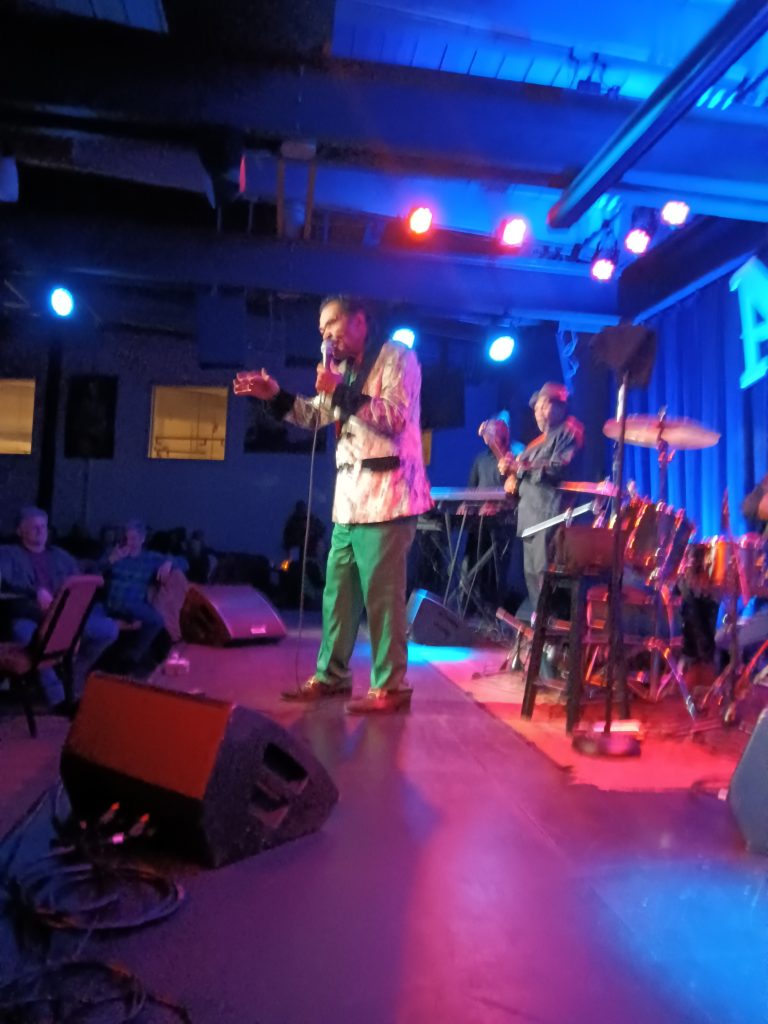
I knew as I drove to Fall River on that moonless, raw winter night it was worth the ride. I could bank on it.
Crossing the Braga Bridge and pulling into a dimly lit parking lot surrounded by old brick factories from a bygone era the scene was set. As I walked into the Narrows nightclub, it felt as though I was having a clandestine meeting with a group of thugs straight from GoodFellas. From three stories above me , floating down as almost from Bluesville, was the raw and unfiltered sound of the legendary Bobby Rush Blues Band working their version of “Hoochie Kootchie Man,” a Muddy Waters classic. Yes, Muddy, aka McKinley Morganfield, was smiling down from heaven.
As part of an East Coast tour that included stops throughout New England, the iconic three-time Grammy winner wowed a crowd with a mix of standards and original Chicago blues. That evening the audience, probably many hard core blues followers, were in the company of blues royalty. After all Bobby Rush, now 91, was the son of a Baptist minister who also was a musician. In1947, Bobby Rush, born Emmett Ellis Jr, along with his family moved from Louisiana, the belly of the blues and jazz, to rural Pine Bluff, Arkansas. It was there that Rush, a teenager, became friends with Elmore James, master slide guitar player, who penned and recorded the gritty “Dust My Broom.” Rush was starting to make his mark at the beginning of a career that now spans nearly 70 years. Along with James and Pinetop Perkins, a soon to be sought after piano man, eventually working for years with Waters, he formed his first band, Bobby Rush and the Four Jivers. That night at the Narrows, Bobby Rush was anything but jive.

It was during the 1950s, due to the promise of better jobs and less segregation, the great Black migration happened. Hundreds of thousands of African Americans moved to places, including Detroit and Chicago, both soon to be a cauldron of soul and blues music. Rush heeded the call. And in the early 50s, he left for Chicago, the windy city to make his mark. It was there that he became part of the spreading blues scene along with Waters, Little Walter, the father of blues harmonica, and Jimmy Reed, another transplant from the South. Rush once told a reporter, “I’ve known so many of these cats… I have lived the history.”
That night, Rush showcased his Southern and Chicago roots. Rush, whose style resembles a cross between the soulful James Brown, the heartfelt pleas of Otis Redding and the masterful harp playing of Walters gave the crowd their money’s worth and a whole lot more. Moving seamlessly from extended versions of the ballad “A Man Like Me” to the funky “I Want To” then on to the classic “She’s So Fine,” Rush had total control of the room’s energy. In a matter of moments had the crowd on their feet, singing along, and the next moment his ghostly blues settled the audience so adroitly you could hear a pin drop.
That decades-old ability to work the room can only happen if the whole band is humming along like a V-8 engine. Hearing the Rush backup band was as if you were driving a vintage 1968 Ford Mustang. The convertible tops down and you’re cruising in the beast of a fire engine red road warrior.
You can easily become transfixed by a tight backup band. Anchored by brilliant guitarist Kenneth Knight, a soft-spoken and down to earth honest disciple of the blues and soul music scene. The veteran sideman, who worked with Bobby Blue Bland and soul sensation Denise LaSalle, said the band has been together a long time and he stressed “It’s All About Family.”
He said the band knows all about harmony. A Lot of bands don’t make it through the ups and downs of the music business “Without leaving their egos at the door.” He pointed out it’s a family affair.

The Bobby Rush Band surely had a musical family on stage. Ace drummer, Bruce Howard, is a fine- tuned drumming machine. Playing with Rush for 40 years — yes 40 years — he and Rush are totally in sync. A rim shot or heavy backbeat pumps up the crowd, as Bobby does his magic. (Let’s be real Taylor Swift can’t come close.) This authenticity you feel deep down inside. Rush doesn’t need a multimillion dollar Hollywood set to deliver. All he needs is his set of more than 300 songs, a blues harmonica, and a crowd that craves his vibe. Yes, that’s 300+ songs. (Let’s see Beyoncé try to come close to that.) There is no contest here. It’s the real deal. Along with Rush, holding down the bottom is seasoned bass player Fred Taylor, who’s been performing with Rush for 33 years. Once his former bus driver, he now is a part of the relentless rhythm section. It’s easy to love how the sound of a sizzling B3 organ or a master blues pianist can become the cherry on the hot fudge sundae. Brilliant pianist, Robert Williams, rounds out the band .
Following the recent 2024 Grammys, where Rush earned his third golden treasure, for best traditional blues album entitled All My love For You ,on the Deep Rush label, the band continues its non-stop tour across the US and then heads off to Europe.
While being a master blues man and a worldwide phenomenon, Rush is also an author. His memoir, written with Herb Powelll, came out last summer. And, it’s one of those books you just can’t put down. He also was the star of an insightful documentary produced by Martin Scorcese that aired on PBS years ago entitled, “The Road To Memphis.”
Rush knows in order to spread the almighty blues while having staying power, his show will always bring him back home to the Southern soul circuit, while also catering to hip music audiences the world over. About his longevity, Rush smiles and says, “I have been able to keep a foothold in many markets. While his roots will always be back to the Delta, he says the blues, the history of our lives, is universal and people can tap into that wherever they are.
More Posts by The Author:
Reggae Groove Mesmerizes Fans at The Odeum
LOCAL JAZZ IS STILL JUMPING IN RHODE ISLAND: Despite musical headwinds, local jazz is still alive and swinging in Rhode Island
BECAUSE HOLLYWOOD WOULDN’T: Why it’s important to support the 7th Annual Rhode Island Black Film Festival
THE STORY OF THE CELEBRITY CLUB IN PROVIDENCE: Rhode Island’s First Integrated Jazz Club
Musings about Making New Friends as a Senior: Or, who wants to hang out with an old geezer who doesn’t know the difference between Instagram and Western Union?


